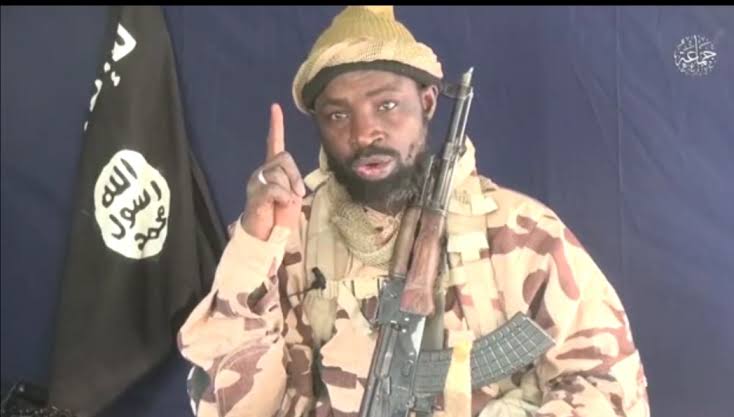Abubakar Shekau killed in Boko Haram civil war

Boko Haram leader Abubakar Shekau is dead, according to a report by HumAngle.
He died on Wednesday evening in a civil war between his faction and ISWAP following the invasion of the terror group’s stronghold in the Sambisa forest area.
CONFIRMED: Abubakar #Shekau, One of the longest surviving Jihadist leaders in the world has died after detonating an explosive device to evade arrest or surrender his leadership.
— UNCLE DEJI™️ (@DejiAdesogan) May 20, 2021
Detailed report by Humangle says #ISWAP took over the #BokoHaram Sambisa enclave following clashes.
ISWAP, which had broken away from the Shekau-led Boko Haram faction in 2016 was allied with the Islamic State (ISIS) accused Shekau of brutality towards other Muslims.
HumAngle reported that Shekau was captured and subdued. During a parley, he was asked to voluntarily relinquish power and order his fighters in other areas to declare bai’a (allegiance) to ISWAP’s authority.
Sources within the insurgency, however, said that Shekau who secretly had a suicide vest on eventually blew himself up alongside everyone present during the negotiations.
Apparently, Shekau died while also killing other high ranking members of ISWAP whose identities are still being investigated by reporters.
Shekau had been the leader of Boko Haram since 2009 following the death of the group’s founder, Mohammed Yusuf. He had been rumoured to have been killed at least four times between July 2009 and Aug. 2015. In Aug. 2016, the Nigerian Air Force claimed he had been “fatally wounded” by military bombardments, but the terror group released a video only a month later showing he was alive and in good health.
What comes next?
The killing of Abubakar Shekau is definitely a blow to terrorism in the Lake-Chad area.
Most Nigerians are celebrating the news on social media. Former senator Shehu Sani tweeted this in response to the reports.
https://twitter.com/ShehuSani/status/1395322669499813893?s=19
ISWAP is led by Abu Musab Al-Barnawi, unlike Shekau his faction does not carry out attacks on the area’s Muslim majority locals, they focus on attacking military targets.
Abu Musab, a son of Boko Haram founder Mohammed Yusuf, previously served as the group’s spokesperson.
But he later joined a sub-group of fighters, including top lieutenant Mamman Nur, who broke away due to Shekau’s rigid methods and extreme position on takfir.
The breakaway faction, now known as ISWAP, moved into the Alagarno and Lake Chad Basin, dislodging or taking over Boko Haram assets in the areas and subsequently becoming the dominant terror group in the axis.
